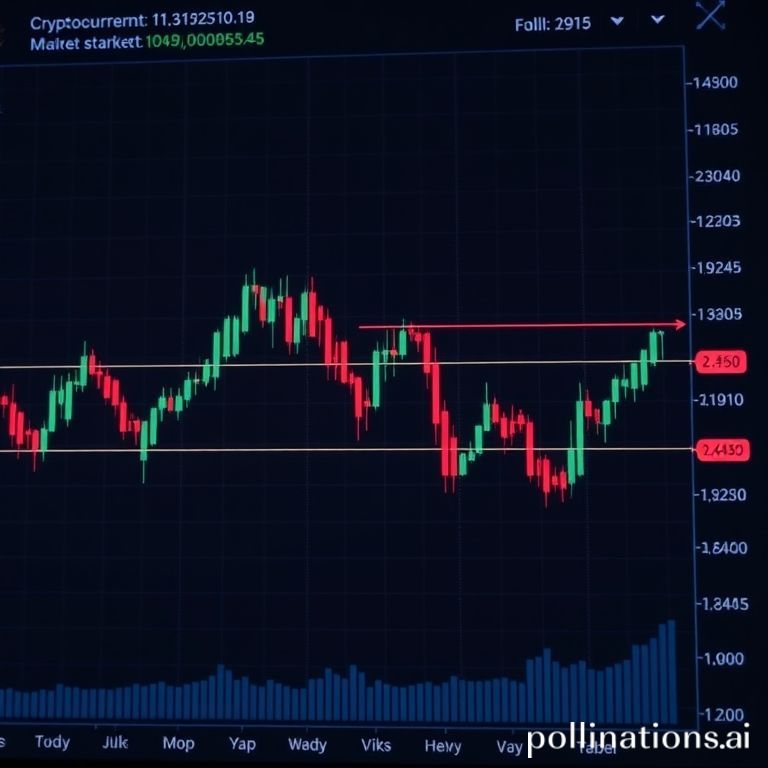Trump Aides Face Ethics Probe Over UAE Crypto & AI Chip Deals

Democratic senators are pushing for a thorough investigation into potential ethics breaches by former Trump administration officials. This inquiry focuses on significant cryptocurrency deals and transactions involving advanced American-designed AI chips destined for the United Arab Emirates (UAE), which have sparked national security concerns. The move follows a revealing report by the New York Times, highlighting two multi-billion-dollar agreements with the UAE. These deals have raised significant questions, particularly regarding the U.S. decision to allow the Emirates to acquire sensitive AI chip technology despite worries about their close economic and strategic ties to China.
The Core of the Controversy: UAE Deals and Crypto Interests
At the forefront of this scrutiny are Senators Elizabeth Warren of Massachusetts and Elissa Slotkin of Michigan. They have formally requested inspectors general at both the Commerce and State Departments to meticulously examine the circumstances surrounding these substantial financial agreements. Their primary concern revolves around the profound implications these deals could have, especially given the UAE’s increasing proximity to China. The senators argue that such connections could severely compromise U.S. security interests. In a pointed letter, they emphasized, "The pattern of these transactions is deeply troubling," underscoring their unease about the potential risks.
Central to this unfolding controversy is Mr. Witkoff, who served as a White House adviser during the Trump administration. He is reported to have played a dual role: actively advocating for the export of advanced AI chips to the UAE while simultaneously facilitating a major investment into his family’s cryptocurrency venture, World Liberty Financial (WLFI). This company has drawn considerable attention due to its deep entanglement with the volatile cryptocurrency market. Public reports suggest that the Witkoff family holds a substantial stake in WLFI, with its value potentially nearing $800 million based on current market evaluations. This perceived conflict of interest—using a government position to advance personal financial gain—forms the crux of the senators' investigation.
Adding another layer of complexity to the situation is David Sacks, another former White House adviser and a prominent venture capitalist. His direct involvement in the chip negotiations has also become a focal point of concern among his former colleagues and ethics watchdogs. Questions have been vigorously raised regarding the appropriateness of a venture capitalist directly negotiating deals that could undeniably benefit his existing financial interests or those of his associates. While Sacks was reportedly granted an ethics waiver to participate in these sensitive discussions, the very existence and scope of this waiver, along with the overall transparency of the deals, continue to be heavily scrutinized. Critics argue that even with a waiver, the optics and potential for undue influence remain problematic.
Demands for Transparency and Accountability
The White House has officially stated that both Mr. Witkoff and Mr. Sacks are fully cooperating with ethics officials to ensure complete adherence to government regulations. However, critics vehemently argue that the intricate web of their personal business interests intertwined with their governmental responsibilities creates a deeply problematic and ethically compromised landscape. As the senators clearly articulated in their statements, the direct intersection of personal financial interests with critical national security decisions poses an undeniable and significant risk to the integrity, impartiality, and overall effectiveness of U.S. foreign policy. This blurring of lines, they contend, could lead to decisions driven by private gain rather than public good.
The current political environment, marked by an increasingly polarized Washington, casts a shadow of uncertainty over whether these investigations will ultimately lead to concrete and meaningful consequences. Lawmakers across the aisle are acutely aware of the urgent need for stringent oversight, especially given former President Trump’s well-documented and often controversial business dealings, as well as his administration’s somewhat unconventional approach to the rapidly evolving cryptocurrency industry. This historical context adds weight to the present concerns, suggesting a pattern that warrants closer examination.
As public and congressional scrutiny intensifies, Democratic leaders are proactively taking steps to directly address these glaring conflicts of interest. Senator Chris Van Hollen, leveraging his influential position on a committee responsible for overseeing the Commerce Department’s budget, is actively demanding clear and comprehensive answers regarding the details and justifications behind the UAE deals. His aim is to bring full transparency to transactions that have thus far been shrouded in ambiguity. Concurrently, a determined group of Democratic representatives has launched their own separate inquiries into whether David Sacks has strictly adhered to the complex regulations governing individuals categorized as "special government employees." These employees, by definition, operate under specific ethical guidelines designed to prevent conflicts of interest, and the representatives are seeking assurance that these rules were not circumvented. The collective effort underscores a bipartisan albeit Democrat-led push for greater accountability and ethical conduct in government dealings.
This growing scandal highlights a critical ongoing debate within U.S. governance: how to manage the participation of individuals with extensive private sector experience and financial holdings in public service roles, particularly when those roles involve sensitive economic and national security decisions. The ethical lines become particularly blurred when these individuals, despite waivers, are perceived to be in positions where their government actions could directly or indirectly enhance their personal wealth or the value of their private investments. The outcome of these investigations will not only determine the culpability of specific individuals but could also set crucial precedents for future ethical standards in government service, especially as the lines between technological innovation, financial markets, and national security continue to converge. The stakes are high, not just for the individuals involved, but for the fundamental principles of public trust and governmental integrity.
